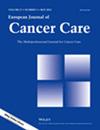Reliability Test of the Oral Nutritional Supplement Adherence Assessment Scale for Colorectal Cancer Patients
Abstract
Background
This study aimed to evaluate the reliability of a self-administered oral nutritional supplement adherence assessment scale for patients with colorectal cancer.
Methods
A presurvey was conducted with 25 colorectal cancer patients already taking nutritional supplements, obtained using purposive sampling to assess the comprehensibility and linguistic expression of the scale items. Following this, 310 questionnaires were distributed during the main survey, with 303 validly returned, yielding a validity rate of 97.74%.
Results
The scale underwent linguistic debugging, resulting in a final version comprising 3 dimensions and 28 items. Exploratory factor analysis (EFA) demonstrated statistically significant KMO values ranging from 0.864 to 0.902 for the three dimensions (p < 0.001). Two common factors were extracted from the knowledge dimension, contributing to a cumulative variance of 66.22%. One common factor was extracted from the belief dimension, with a cumulative variance contribution of 66.29%. The behavior dimension also demonstrated a cumulative variance contribution of 61.78%. The scale exhibited a Cronbach’s α coefficient of 0.904, split-half reliability of 0.857, a retest reliability coefficient of 0.859, and a content validity index (S-CVI) of 0.903.
Conclusion
The developed oral nutritional supplement adherence assessment scale for colorectal cancer patients demonstrated strong reliability and validity, making it an effective tool for evaluating adherence to oral nutritional supplementation. This scale can serve as a reference for the future development of related assessment tools and may contribute to improving nutritional management and clinical outcomes for patients with colorectal cancer.


 求助内容:
求助内容: 应助结果提醒方式:
应助结果提醒方式:


